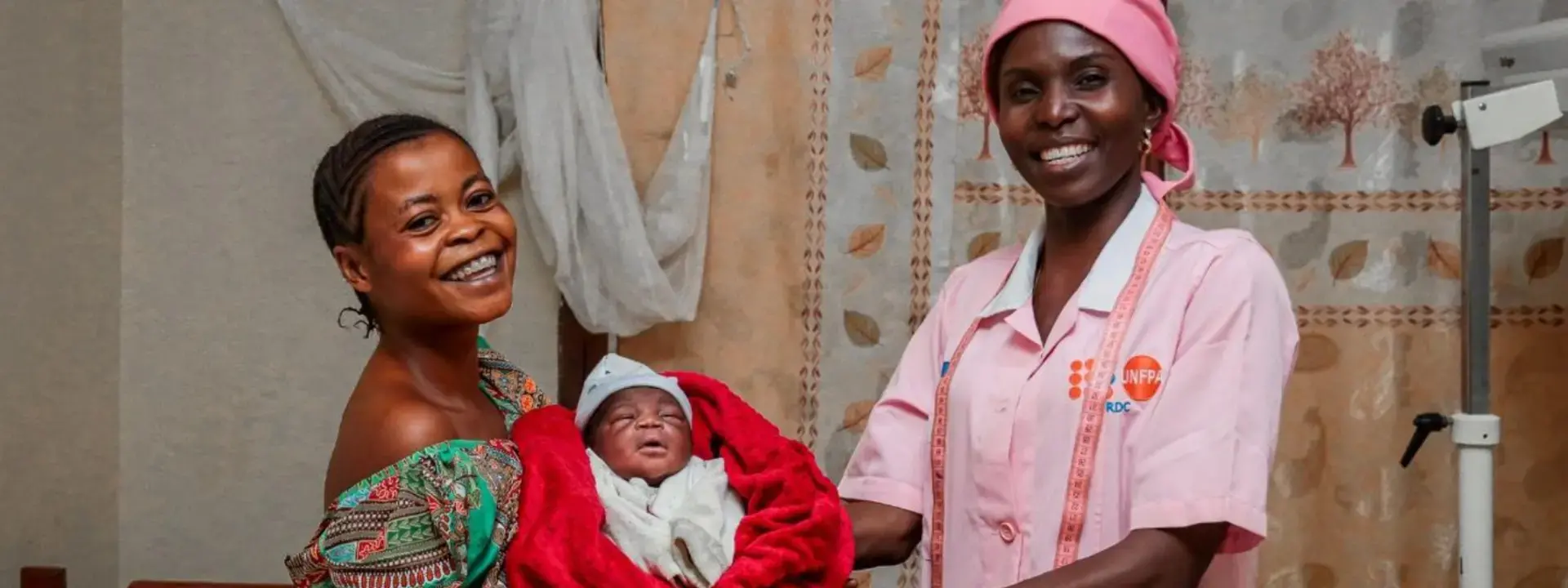In the Democratic Republic of Congo (DRC), at least 4 women die every hour from complications of pregnancy or childbirth, and 23 newborns die every day from birth complications. This is an unacceptable tragedy that UNFPA, in collaboration with the government and other partners, is working to combat. Both parties aim to contribute to improving access to maternal health services and care for newborns, as well as young people and adolescents. By scaling up high-impact maternal health interventions, UNFPA remains optimistic about achieving the goal of zero preventable maternal deaths by 2030 in the DRC, which will undoubtedly contribute to achieving the first and second targets of Sustainable Development Goal 3. Some of its interventions that have a direct impact on achieving the goal of zero maternal deaths by 2030 include:
- Making health human resources available in health facilities, qualified to deliver babies, through the training of midwives both within the country and within the department (clinical mentoring, etc.) to improve the quality of services for pregnant women and newborns;
- Building the capacity of other providers who care for pregnant women (physicians, multi-skilled nurses) to manage obstetric complications through clinical mentoring;
- Strengthening the supply chain for essential medicines that save the lives of mothers, newborns, and children; Strengthening the technical platform of health facilities at different levels through the rehabilitation and equipping of maternity wards, operating theaters, the supply of management tools, particularly the partograph, the establishment of blood banks, neonatology/pediatrics services, and malnutrition management services;
- Establishing mechanisms for the rapid referral of obstetric complications;
- Strengthening the monitoring of maternal and perinatal deaths in all health zones across the country;
- Advocating for the promotion of sexual and reproductive health rights for women and girls in the DRC;
- Integrating youth- and adolescent-friendly sexual and reproductive health services into health facilities;
- Promoting family planning as a means not only to prevent unwanted pregnancies and maternal deaths, but also to improve the health of women, children, families, and communities;
- Strengthening the technical platform and establishing healthcare teams (doctors, anesthesiologists, nurses, and midwives) for routine surgical management of simple cases of obstetric fistula at the HGR level in all health zones;
- Strengthening community participation in the fight against maternal deaths and raising community awareness of danger signs in pregnant women and newborns, as well as life-saving procedures;
- Strengthening communication around the availability and provision of quality reproductive health services.


